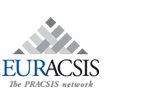Enhancing Collaboration between Supreme Audit Institutions and Anti-Corruption Bodies
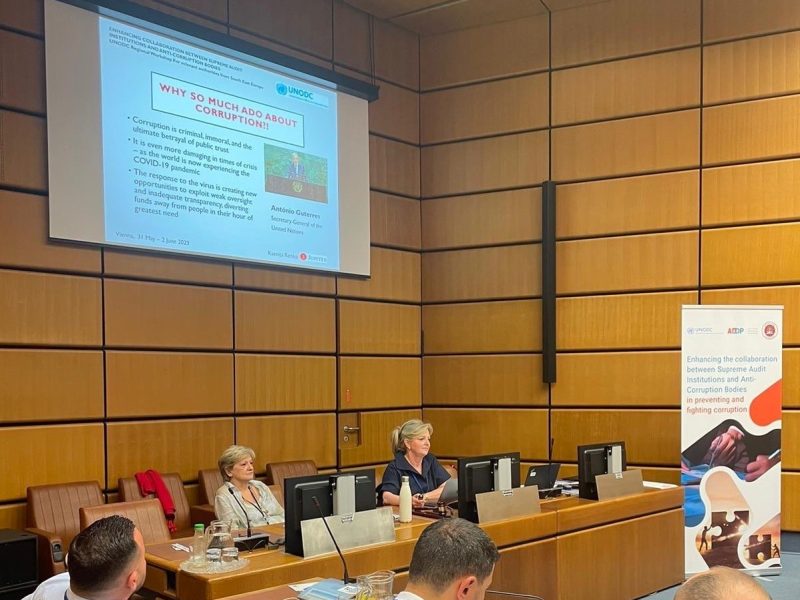
Enhancing Collaboration between Supreme Audit Institutions and Anti-Corruption Bodies
UNODC, May/June 2023, Vienna, Austria
Corruption is a complex phenomenon, cross-cutting different sectors of a society and posing a serious threat to the countries` economic development. The importance of inter-agency collaboration and national and regional alliances of relevant authorities in joining the efforts to prevent and counter corruption is widely acknowledged today. The regional event gathered participants from supreme audit institutions and anti-corruption bodies from eight South Eastern European countries: Albania, Bosnia and Herzegovina, Bulgaria, Croatia, Montenegro, North Macedonia, Romania and Serbia. It was part of a series of training workshops being delivered among the INTOSAI regional group of authorities to leverage the knowledge and experience of the relevant authorities from countries in the Southeast Europe region and foster informed decisions on enhancing collaborations. Ksenija Renko from JUPITER Strategic Consulting, Croatia, provided participants with principles and examples of effective communication for supreme audit institutions and anti-corruption bodies and encouraged participants to share examples and good practices in the open discussion model.

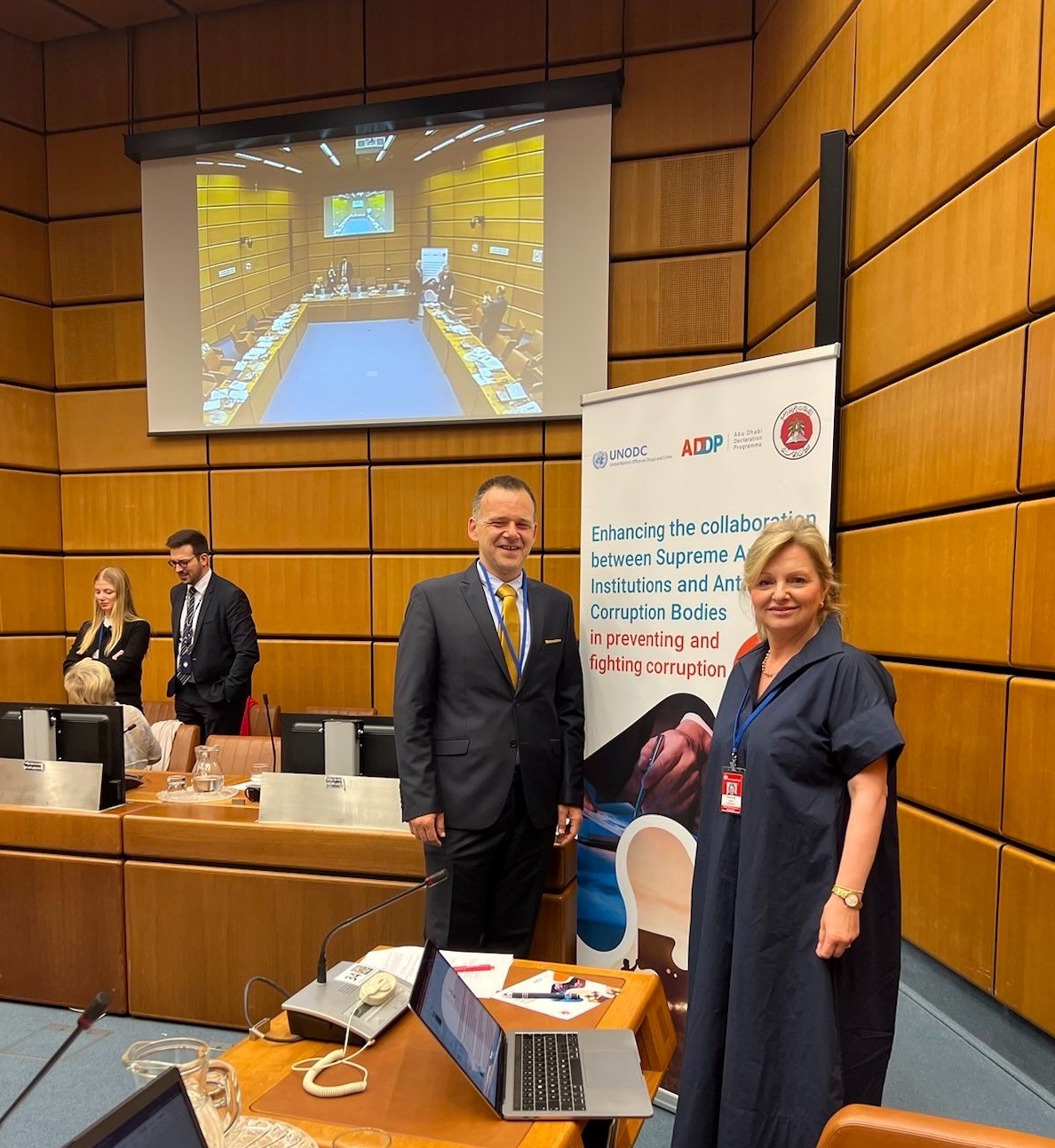
The regional event is designed to follow the Practical Guide on Enhancing Collaboration between Supreme Audit Institutions (SAIs) and Anti-Corruption Bodies (ACBs) that UNODC produced under the Programme and enabled in-depth discussions to identify the areas of cooperation, exchange and joint actions. It also provided a platform for peer-to-peer learning from other countries’ experiences and good practices and for discussions on enhancing the region’s effectiveness and operational cooperation mechanisms. The presence of the experts and lecturers from the EU member countries at the event helped promote the operational collaborative mechanisms and facilitated the accession roadmap for gathered non-EU countries. One of the objectives was to encourage the implementation of the Abu Dhabi Declaration by strengthening the role of SAIs in the prevention and fight against corruption and enhancing collaboration between SAIs and ACBs.
The relevance of cooperation has generated comprehensive efforts at the international level in the past decades to identify the appropriate mechanisms and measures that would help countries and authorities to counter corruption more effectively. Among those, the United Nations Convention against Corruption (UNCAC) is the only universal, legally binding document containing mandatory provisions for State parties. In its Chapter II, UNCAC provides a framework for the prevention of corruption, requiring and recommending State parties to apply a range of measures, from anti-corruption policy, integrity in the public sector, asset disclosures and conflict of interest rules, public procurement, and management of public finances, to the roles of private sector and civil society. Chapter IV is focused on promoting international cooperation, notably amongst law enforcement and other stakeholders.
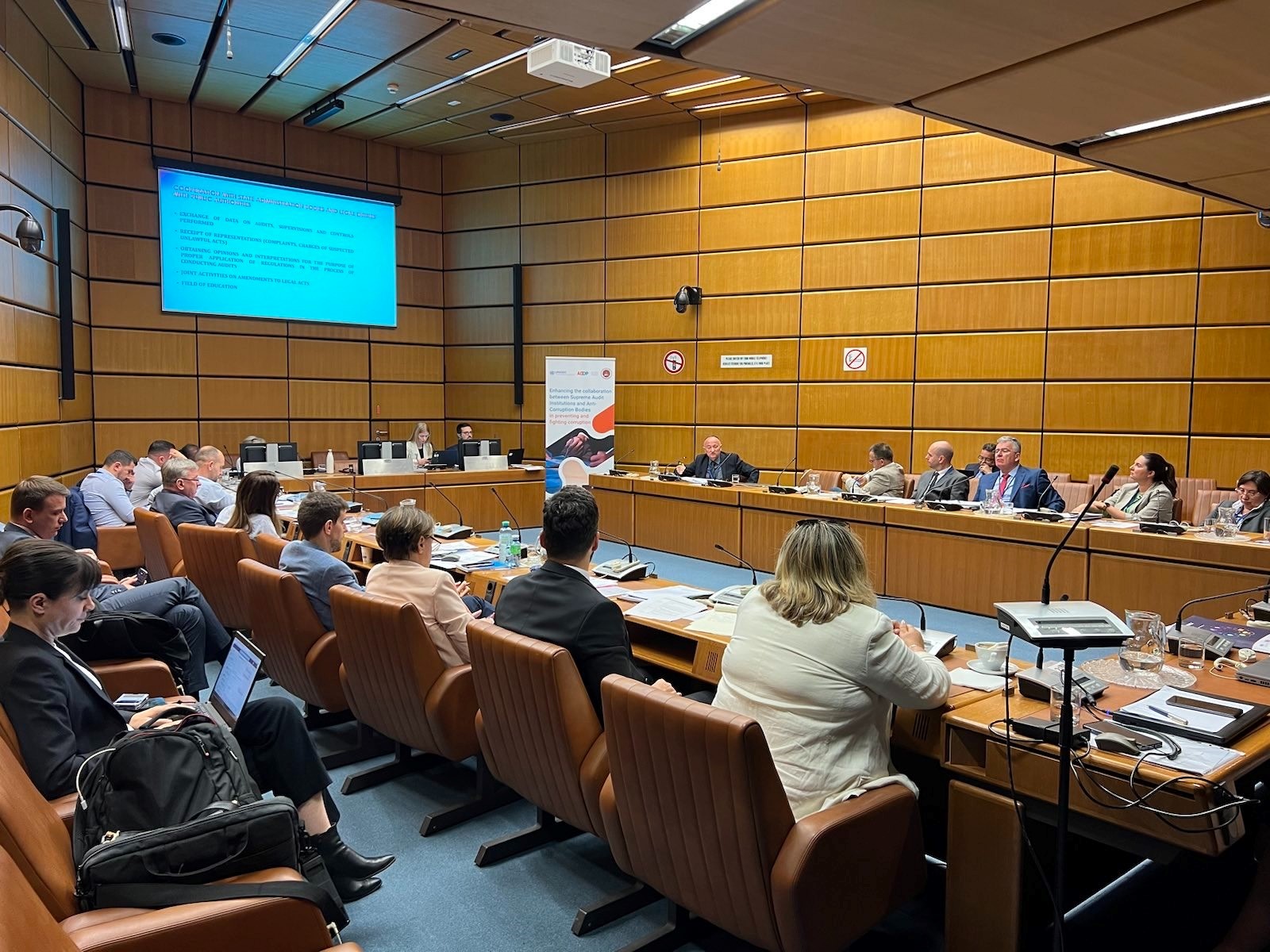
“In performing their noble and demanding mission of fighting corruption in their countries, the supreme audit institutions and the anti-corruption bodies have significantly increased the scope of work and the number of employees. Due to their sensitive and complex work, remarkable public exposure of the organizations, the overall scope of work, and the increased or decreased number of employees – the leaders in the organizations manage their very complex position, which is to mediate between the public, prosecution, politicians, the media, and different experts’ services. Being aware of the above and in compliance with the organizations’ development strategies, the leaders and the managers must decide to undertake the necessary steps and invest their time and resources in upgrading the system and culture of internal and external communication of those organizations, as well as collaborative communication between them. Due to that, it is necessary for SAIs and ACBs communications departments to organize internal communication at horizontal and vertical levels and to ensure the flow of information and data. Strategic external communication with the public and media will allow professionals in organizations to share their opinions and suggestions about their work, working environment, motivation, and above all, to provide a secure and reliable flow of information, which is mainly very delicate and confidential”, stressed Ksenija Renko, Senior Communication Expert from JUPITER Strategic Consulting, Croatia.
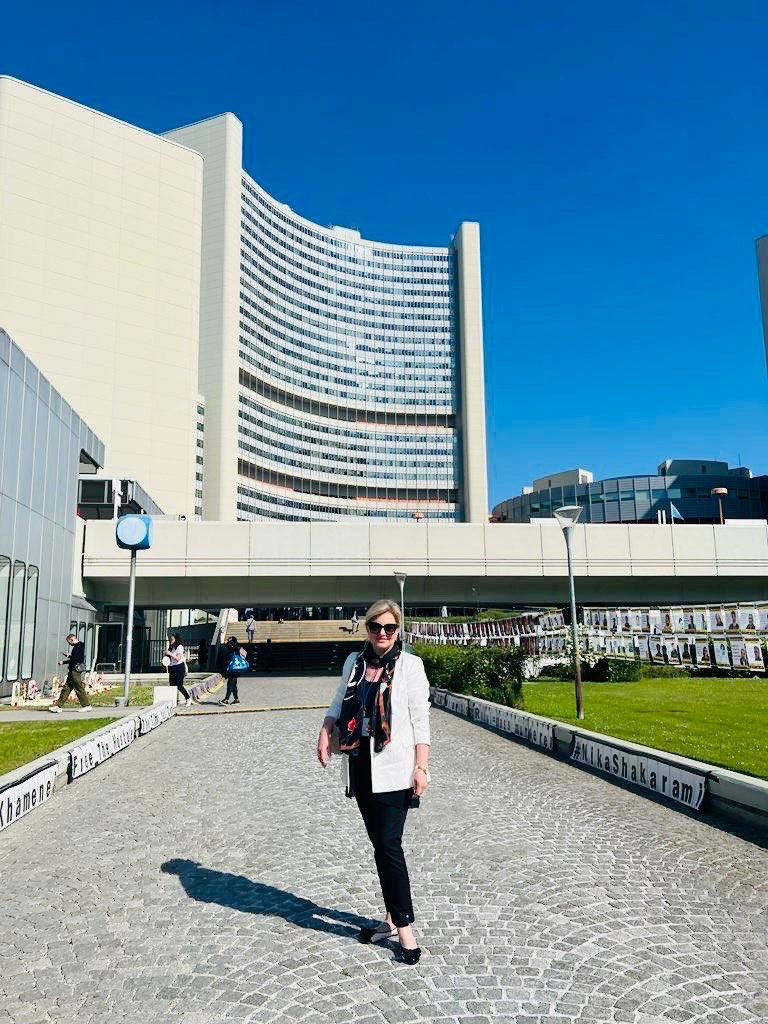
Countries worldwide are increasingly taking efforts to create closer collaborations between their audit and anti-corruption relevant authorities. The recent COVID-19 pandemic has additionally highlighted the need for greater transparency, accountability, and integrity in the use and allocation of public funds, and UNODC has already started providing support to States parties to strengthen their capacity to apply these approaches in practice. In this environment, the need to ensure the integrity of financial management and strengthen the links between auditors and anti-corruption professionals in the state parties has become of paramount importance.
In furthering the UNCAC implementation, the Conference of the States Parties (CoSP) to the United Nations Convention against Corruption adopted the resolution 8/13, entitled “Enhancing collaboration between the supreme audit institutions and anti-corruption bodies to more effectively prevent and fight corruption,” recognizing the importance of the supreme audit institutions (SAIs) and the anti-corruption bodies (ACB) in the fight against corruption. The resolution underlines the critical role of the supreme audit institutions by promoting integrity, accountability, transparency, and the proper management of public affairs and public property and efficient use of public resources to prevent and fight against corruption.
The memorandum of understanding (MoU) between the United Nations (UN) and the International Organization of Supreme Audit Institutions (INTOSAI), signed on 30 July 2019, provides a framework for cooperation between the two institutions in preventing and combating corruption. The overarching areas of cooperation include contributing to the achievement of SDG 16 concerning the performance of governments in the field of effective public financial management and corruption risk mitigation and supporting State parties of UNCAC and Members of INTOSAI in their efforts to implement the Convention effectively.

